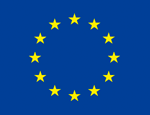
| Title | BUILDING-INTEGRATED USER-EMPOWERED FLEXIBILITY TRADING | ||
| Acronym | BlueBird | ||
| Start date | 01/01/2025 |
End date: | 31/12/2027 |
| Topic | HORIZON-CL5-2024-D4-01-02 | GA id | 101192452 |
| Type of action | HORIZON EUROPE Climate, Energy and Mobility | ||
SUMMARY
BlueBird will deliver a comprehensive and validated toolset, to fully allow competitive adoption of buildings as energy flexibility assets, supporting smooth integration of services towards energy market players (i.e., TSO, DSO, aggregators) while maximally aligning with end-user’s (i.e., building managers, occupants) requirements and acceptance criteria
INTRODUCTION
To successfully achieve the Green Deal and sustainability targets, the electricity grid requires a drastic increase of the energy efficiency and renewable energy resources, while considering its integration with other energy carriers. The increased fraction of small, variable and less predictable decentralised generation causes balancing the electricity supply and demand to be ever more challenging and calls for increased flexibility in the electricity system. Hence, flexibility schemes lie at the core of the EU’s holy grail of an energy transition towards minimizing carbon emissions and achieving sustainable energy consumption, originating from the EU citizens themselves. However, current flexibility schemes exhibit several important shortcomings. First, the number of flexible assets they address is still quite limited, due to the prevalence of legacy systems and low adoption of smart solutions (i.e., Building Energy Management Systems and IoT/smart devices). Second, the design methodology to exploit flexibility does not proactively cater for consumer acceptance: users’ needs are not considered in a holistic way. Yet, user acceptance of proposed flexibility actions is highly dependent on properly accounting for, e.g., building occupants’ comfort levels, lifestyle, personal considerations, commuting needs or neighbourhood infrastructure. Third, although the set of core services that buildings provide to their occupants is rather well-defined and stationary, technologies and technical equipment required to implement them is heterogenous and varies dynamically over time. Thus, energy system operators struggle to maximally incorporate and benefit from demand side flexibility services, and to exploit them for operational and ancillary services that address their technical issues of ensuring resilience, efficiency, and reliability for modern electrical grids.
The project will enable connecting any building type to provide services to:
- Optimize the building’s internal operation or flexibility, based on price signal (exploiting the synergies between all different systems connected to it, i.e., HVAC, storage, RES, DH, geothermal, gas…) and considering events and building usage conditions coming from external factors such as weather conditions, traffic conditions, air pollution, etc.
- Optimize towards energy markets and offering flexibility services to a grid operator through aggregation by a Trading Manager (TM) that presents buildings as Distributed Energy Resources (DERs) and thus summing buildings power to required magnitudes.
PARTNERSHIP
PARTNERS
Funds
BlueBird project has received funding from the HORIZON EUROPE Innovation Action under Climate, Energy and Mobility, Grant Agreement nº 101192452



















